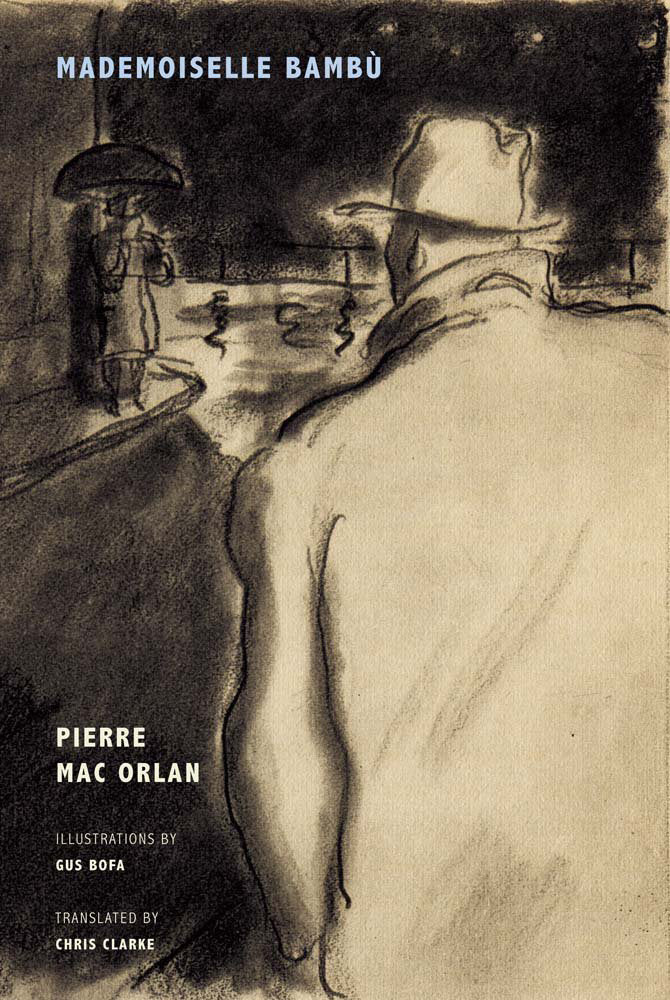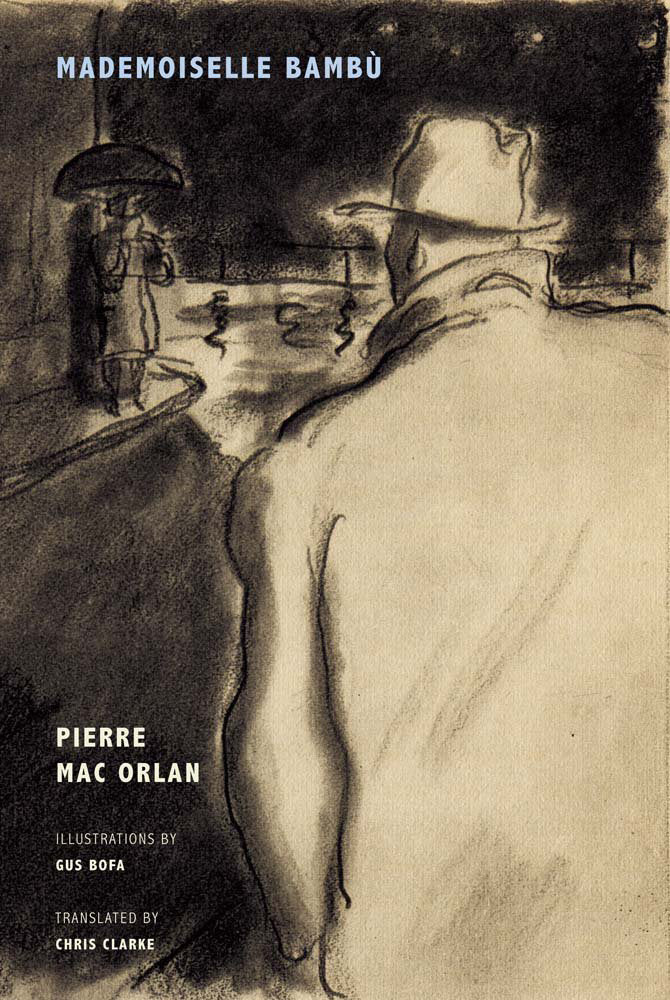Mademoiselle Bambù
Mademoiselle Bambù
Pierre Mac Orlan
Couldn't load pickup availability
Translated, with an introduction, by Chris Clarke / Illustrations by Gus Bofa / Afterword by Aaron Peck / December 2017 / 6 x 9, 240 pp. / 978-1-939663-25-2
Mademoiselle Bambù is Pierre Mac Orlan’s take on the spy novel, rewritten and expanded four times over from 1932 until its publication in its final, consolidated form in 1966. Set in Hamburg, London, Palermo, Brest, and other ports of call in the anxious Europe of the 1920s and 1930s, Mademoiselle Bambù tells the tales of three secret agents: the melancholic adventurer and accidental spy, Captain Hartmann; his enigmatic mistress from Naples (and a double agent for the Germans), “Signorina Bambù”; and the sinister Père Barbançon, who retires from his life of espionage and murder to eke out his troubled days in an aptly named “Boarding House of Usher,” where shadows are as likely to strangle a man as they are to haunt him.
Like all of Mac Orlan’s novels, Mademoiselle Bambù is less a novel than a barometer of societal unease, crippling melancholy, and dark humor. It is also one of the clearer examples of what the author named the social fantastic: a less romantic notion of the fantastic as it is commonly understood, translated through the lens of modernity. Instead of the eruption of the supernatural into the everyday, Mac Orlan located a new form of the fantastic in the eruption of modernity in social life, with diabolical emanations not in supernatural beings or creatures, but in such real-life human beings as Jack the Ripper, Henri Désiré Landru, and Mata Hari—personages whose influence makes itself known in the novel at hand.
Generally known as the author of Le Quai des brumes (the basis for Marcel Carné’s film of the same name), Pierre Mac Orlan (1882–1970) was a prolific writer of absurdist tales, adventure novels, flagellation erotica, essays, as well as a trove of songs made famous by the likes of Juliette Gréco. A member of both the Académie Goncourt and the Collège de ’Pataphysique, Mac Orlan was admired by everyone from Raymond Queneau and Boris Vian to André Malraux and Guy Debord.


